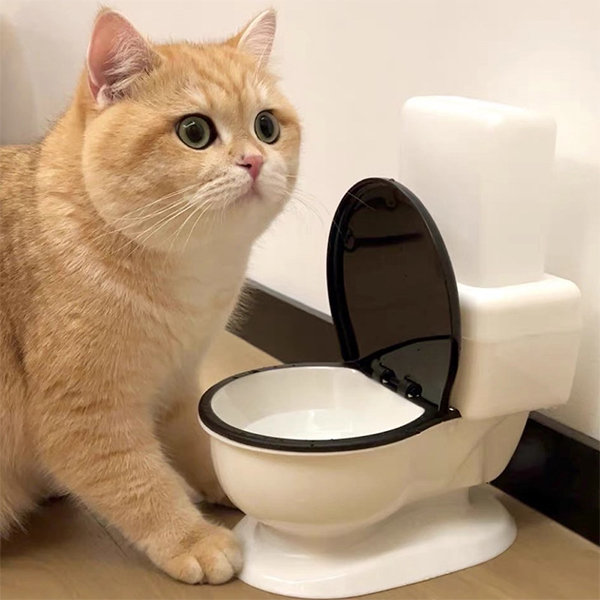Reasons You Mustn't Flush Cat Poop Down Your Toilet - Maintain Your Pipe System
Reasons You Mustn't Flush Cat Poop Down Your Toilet - Maintain Your Pipe System
Blog Article
Just how do you actually feel in regards to Don’t flush cat feces down the toilet?

Intro
As pet cat proprietors, it's vital to be mindful of how we deal with our feline good friends' waste. While it might appear convenient to flush cat poop down the toilet, this method can have detrimental repercussions for both the setting and human health.
Environmental Impact
Flushing cat poop introduces hazardous pathogens and parasites into the water supply, posing a significant threat to marine ecological communities. These impurities can negatively impact aquatic life and concession water high quality.
Health Risks
Along with environmental concerns, purging feline waste can also present health and wellness threats to people. Cat feces might include Toxoplasma gondii, a bloodsucker that can trigger toxoplasmosis-- a possibly serious ailment, especially for expectant females and individuals with weakened body immune systems.
Alternatives to Flushing
Fortunately, there are safer and much more accountable means to take care of cat poop. Take into consideration the following options:
1. Scoop and Dispose in Trash
One of the most usual method of disposing of cat poop is to scoop it right into a naturally degradable bag and toss it in the trash. Make certain to use a specialized clutter inside story and get rid of the waste quickly.
2. Use Biodegradable Litter
Select biodegradable pet cat trash made from materials such as corn or wheat. These clutters are eco-friendly and can be safely disposed of in the garbage.
3. Bury in the Yard
If you have a lawn, consider hiding feline waste in an assigned location far from vegetable yards and water sources. Make sure to dig deep enough to stop contamination of groundwater.
4. Install a Pet Waste Disposal System
Invest in a pet waste disposal system particularly made for feline waste. These systems use enzymes to break down the waste, lowering odor and ecological influence.
Verdict
Liable pet possession expands beyond giving food and shelter-- it also entails appropriate waste management. By refraining from flushing feline poop down the toilet and selecting alternate disposal methods, we can reduce our environmental impact and protect human wellness.
Why Can’t I Flush Cat Poop?
It Spreads a Parasite
Cats are frequently infected with a parasite called toxoplasma gondii. The parasite causes an infection called toxoplasmosis. It is usually harmless to cats. The parasite only uses cat poop as a host for its eggs. Otherwise, the cat’s immune system usually keeps the infection at low enough levels to maintain its own health. But it does not stop the develop of eggs. These eggs are tiny and surprisingly tough. They may survive for a year before they begin to grow. But that’s the problem.
Our wastewater system is not designed to deal with toxoplasmosis eggs. Instead, most eggs will flush from your toilet into sewers and wastewater management plants. After the sewage is treated for many other harmful things in it, it is typically released into local rivers, lakes, or oceans. Here, the toxoplasmosis eggs can find new hosts, including starfish, crabs, otters, and many other wildlife. For many, this is a significant risk to their health. Toxoplasmosis can also end up infecting water sources that are important for agriculture, which means our deer, pigs, and sheep can get infected too.
Is There Risk to Humans?
There can be a risk to human life from flushing cat poop down the toilet. If you do so, the parasites from your cat’s poop can end up in shellfish, game animals, or livestock. If this meat is then served raw or undercooked, the people who eat it can get sick.
In fact, according to the CDC, 40 million people in the United States are infected with toxoplasma gondii. They get it from exposure to infected seafood, or from some kind of cat poop contamination, like drinking from a stream that is contaminated or touching anything that has come into contact with cat poop. That includes just cleaning a cat litter box.
Most people who get infected with these parasites will not develop any symptoms. However, for pregnant women or for those with compromised immune systems, the parasite can cause severe health problems.
How to Handle Cat Poop
The best way to handle cat poop is actually to clean the box more often. The eggs that the parasite sheds will not become active until one to five days after the cat poops. That means that if you clean daily, you’re much less likely to come into direct contact with infectious eggs.
That said, always dispose of cat poop in the garbage and not down the toilet. Wash your hands before and after you clean the litter box, and bring the bag of poop right outside to your garbage bins.
https://trenchlesssolutionsusa.com/why-cant-i-flush-cat-poop/

As a reader on Don’t flush cat feces down the toilet, I think sharing that article post was worth the trouble. Sharing is good. Helping people is fun. Thanks a lot for taking the time to read it.
Get A Free Estimate Report this page